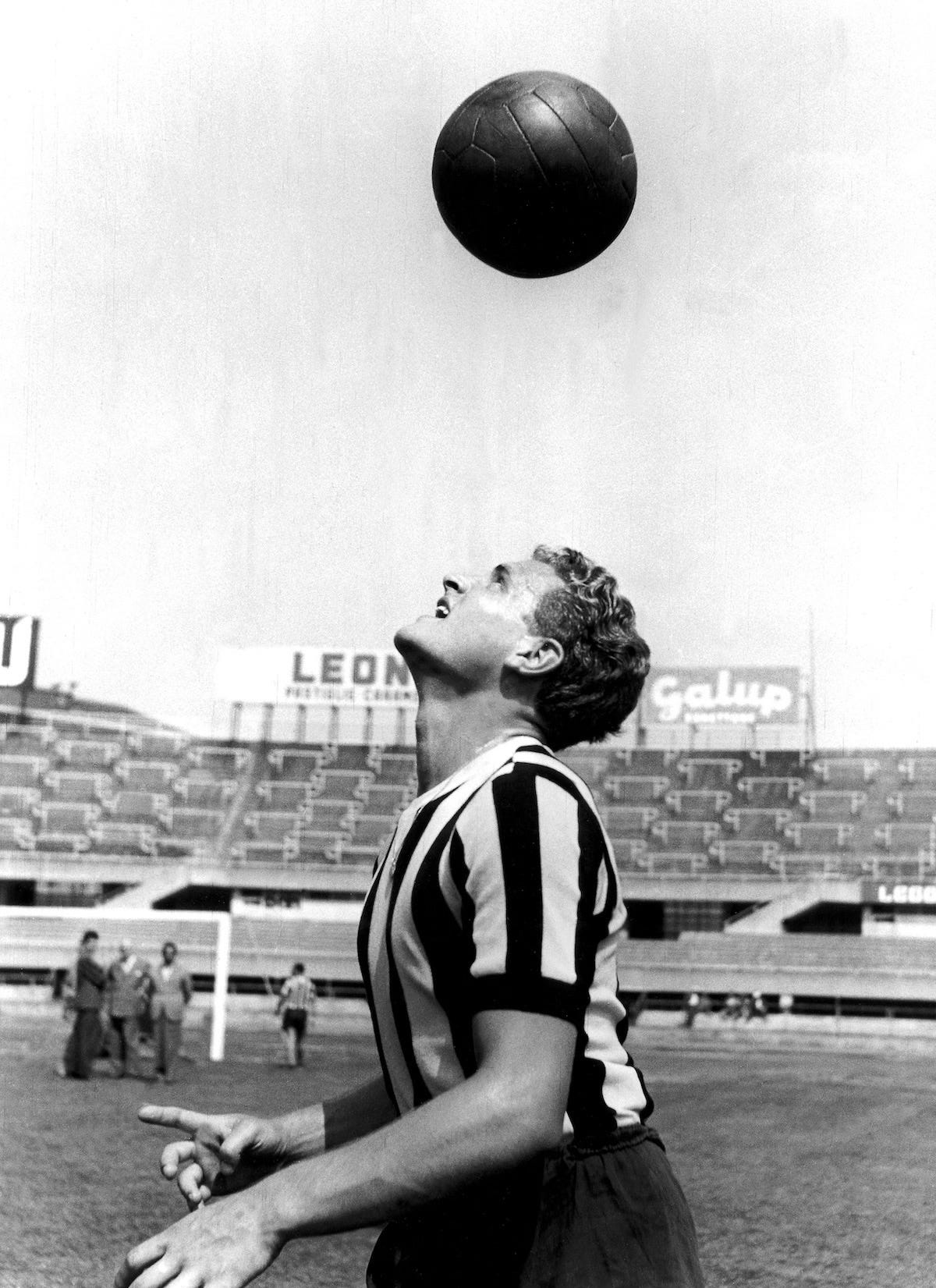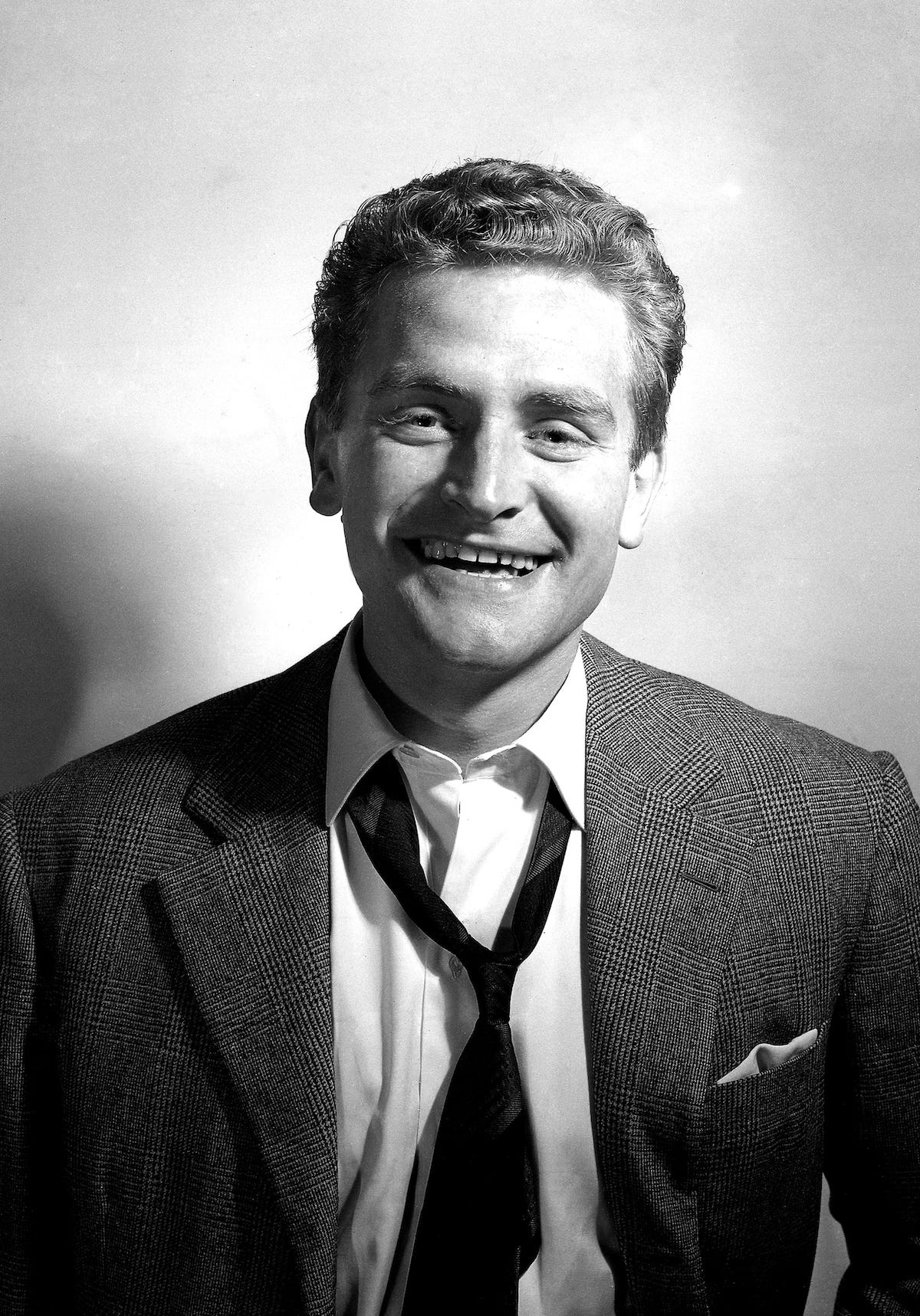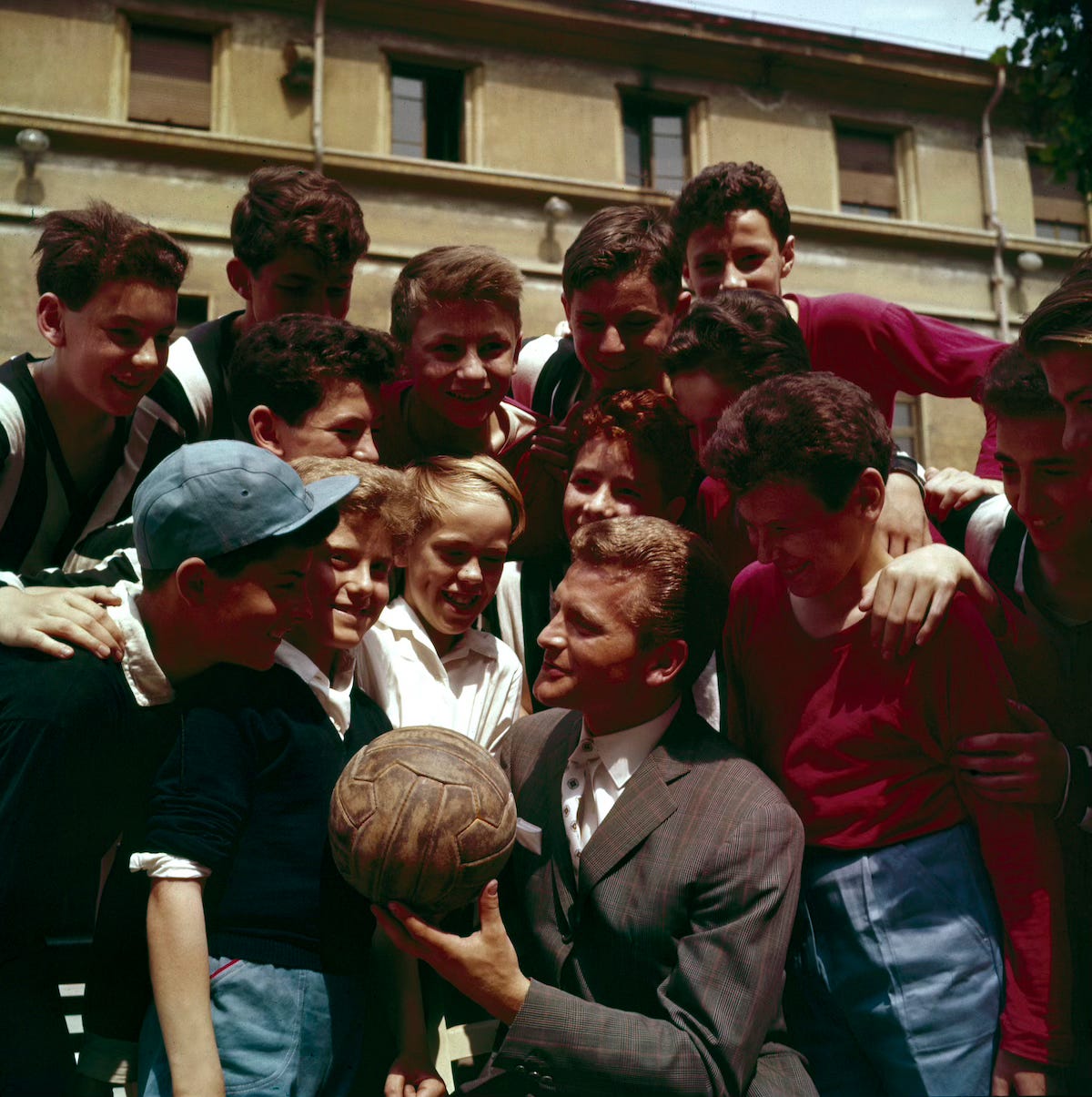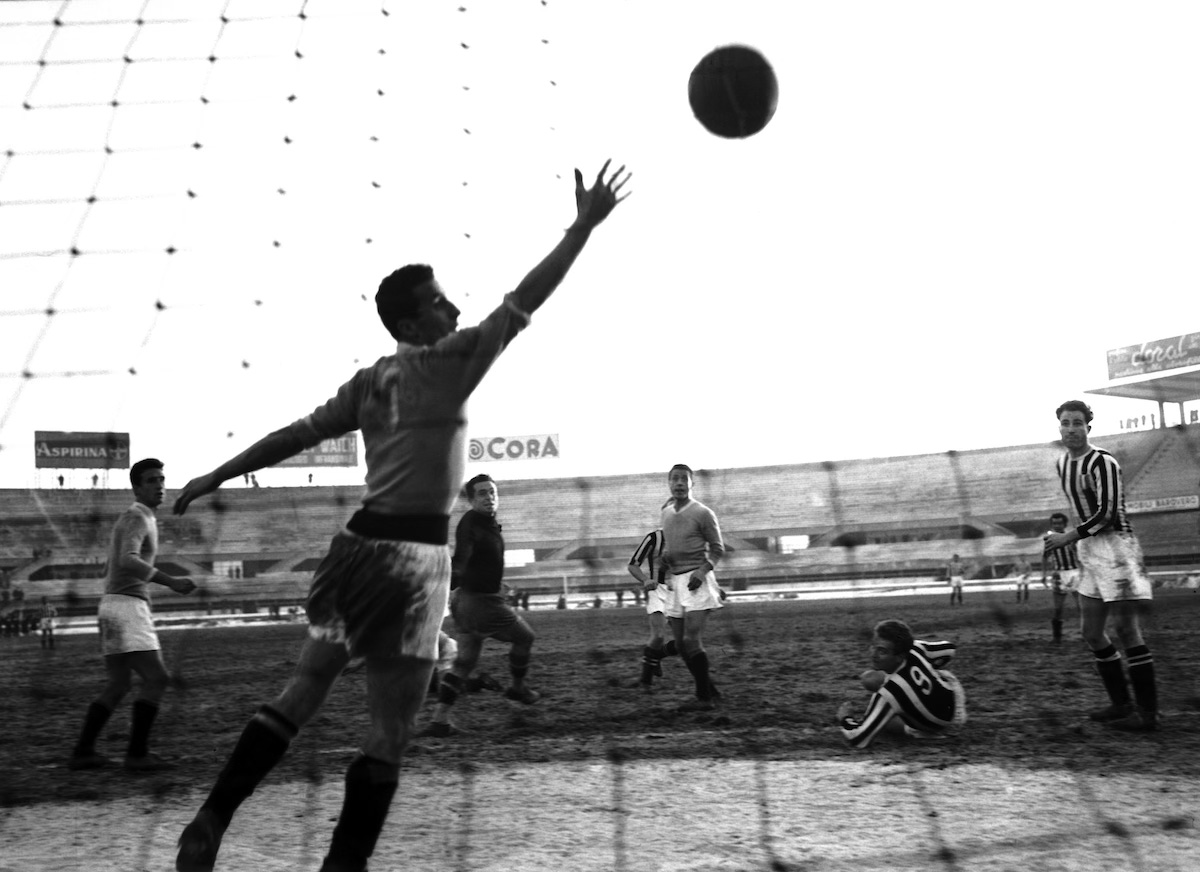Some names don’t just belong to a football club; they define it. For Juventus, Giampiero Boniperti is one of those names. He entered the first team as a teenager in 1947, just as Italy was beginning to breathe again after the devastation of war. By the time he retired in 1961 he had become the face of the club, the standard against which all who followed would be measured. To open our Legends series, we start with Boniperti not because he was simply great, but because he distilled Juventus into a person: intelligence, loyalty, and the will to win.
The Player
Boniperti’s first appearance came on March 2, 1947, against A.C. Milan. Barely 18, he scored on his debut, an early glimpse of his ability to make decisive moments look inevitable. He was never the most physical forward — not tall, not particularly fast — but he read the game with uncanny precision. His timing, positional sense, and instinct allowed him to appear in the right place at the right moment.
In the late 1940s he was deployed as an inside forward, part of the old WM formation. He quickly proved himself a natural finisher, striking with both feet and capable of subtle headers. He had a knack for finding pockets of space between defenders, then dispatching the ball before they could react. There was little waste in his play; where others might embellish, Boniperti was economical, direct, and efficient.
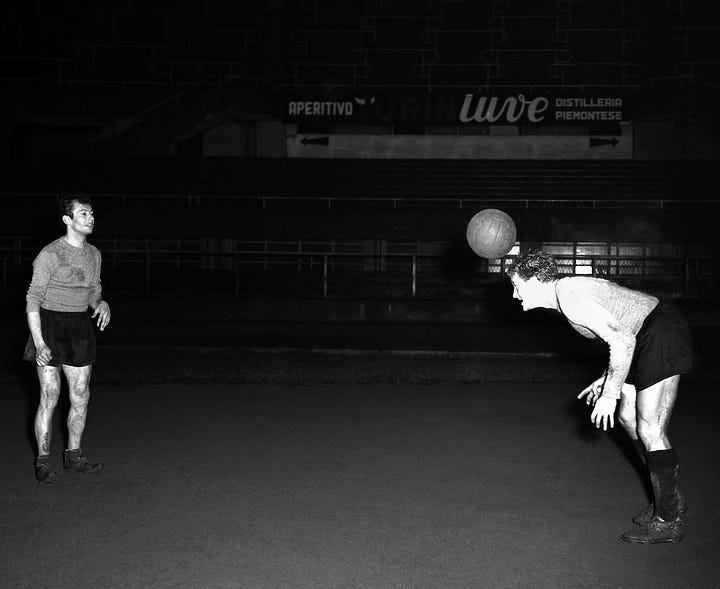
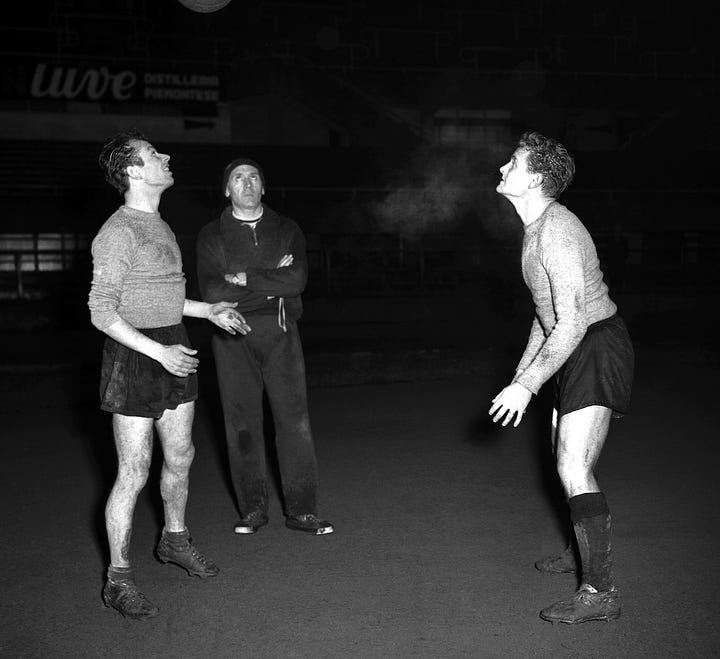
As the 1950s began, Juventus rebuilt its attack around him. Danish imports John Hansen and Karl Aage Præst joined him in what became known as the Trio Magico. Hansen’s aerial dominance and Præst’s wing play gave Boniperti the perfect platform: he could link the lines, drift across the attack, and decide when to strike. He wasn’t the sort of forward who dazzled with tricks, but his intelligence set the rhythm. When the ball came to him, the move suddenly made sense.
Alongside teammates like Carlo Parola (himself a symbol of post-war Juventus) Boniperti embodied the club’s return to prominence. Later in the decade, when Juventus signed Welsh powerhouse John Charles and Argentine genius Omar Sívori, he adapted again. No longer the primary goal-scorer, he reinvented himself as the fulcrum of the forward line. He ceded the spotlight without complaint, feeding passes to Sívori or clearing space for Charles. Where many strikers fade when asked to share responsibility, Boniperti thrived. He proved that a great player is not just measured in goals, but in how he elevates those around him.
What defined him most was clarity of purpose. Every touch had intention; every run mattered. He rarely wasted motion, rarely indulged in theatrics. He played as if Juventus were an extension of himself: serious, elegant, focused, and relentless.
The Person
Those who only encountered Giampiero Boniperti through headlines or history books might imagine that, by his eighties, he had mellowed into a gentle elder statesman. According to Marco and Mauro La Villa, who met him twice in his Moncalieri office while preparing The Juve Story, nothing could be further from the truth.
They recall that they scarcely had time to sit down before Boniperti seized control of the meeting, launching into tales of his glory days with the same conviction that once carried him through ninety minutes on the pitch. He didn’t simply recount the past, he reenacted it. Shoves, elbows, sudden bursts of movement — the competitive fire was still very much alive, and it was impossible not to be swept along by his energy. Even decades removed from the field, Boniperti carried himself as if the match had never ended.
That same combination of drive and guile came through in a story Boniperti shared about his humble beginnings in Barengo and his first contract with Juventus. He described signing a blank sheet of paper to join the club, an act of pure faith, but when it came to bonuses, he revealed his sharper instincts. With Gianni Agnelli, he negotiated an unusual clause: one cow for every achievement he reached. Agnelli agreed, only to receive a phone call from the farmer charged with fulfilling the bargain. “Giampiero always manages to pick the pregnant ones!” the farmer exclaimed. Rather than take offense, Agnelli laughed, impressed by his young striker’s cunning. Boniperti, telling the tale decades later, broke into gregarious laughter himself, punctuating it with emphatic back slaps.
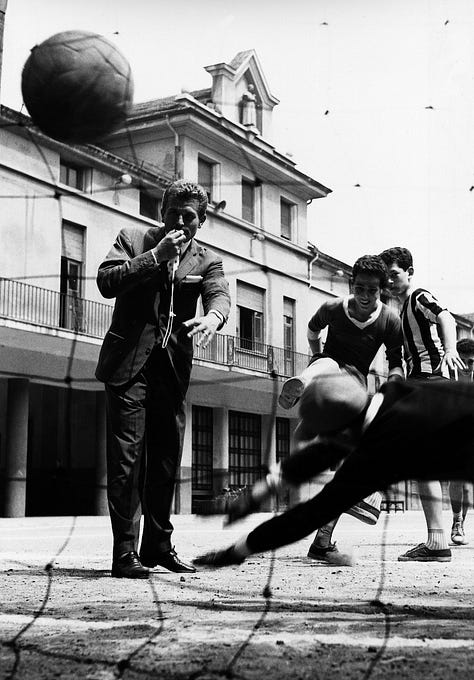
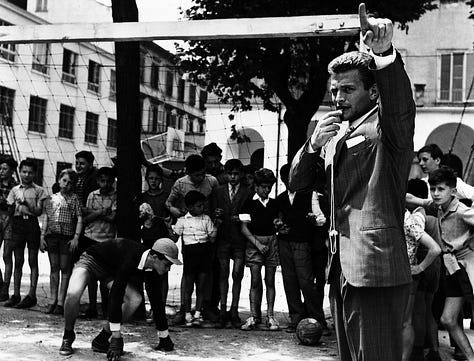
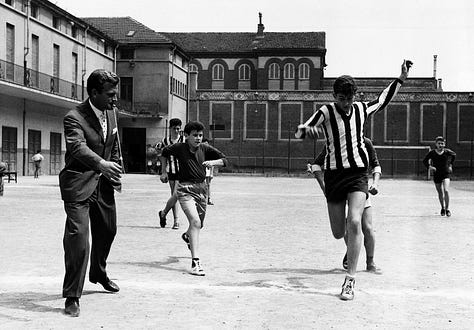
And then, of course, there are the words forever tied to his name: “Vincere non è importante, è l’unica cosa che conta” - “Winning isn’t important; it’s the only thing that counts.” It was not a slogan but a creed. In every gesture, every anecdote, every encounter, Boniperti confirmed that his life, like his game, was defined by a relentless desire to come out on top.
The Legend
Why does Giampiero Boniperti stand as a Juventus legend? The numbers alone make the case. Across 15 seasons in black and white, he played 443 Serie A matches and scored 178 goals. For decades he was the club’s all-time top scorer, until Alessandro Del Piero surpassed him nearly half a century later.
With Boniperti, Juventus returned to dominance. He won five Serie A titles — in 1950, 1952, 1958, 1960, and 1961 — and two Coppa Italia trophies. He represented Italy 38 times, appearing at the 1950 and 1954 World Cups. At club level, he helped Juventus transition from post-war uncertainty to the powerhouse that would dominate Italian football for generations.
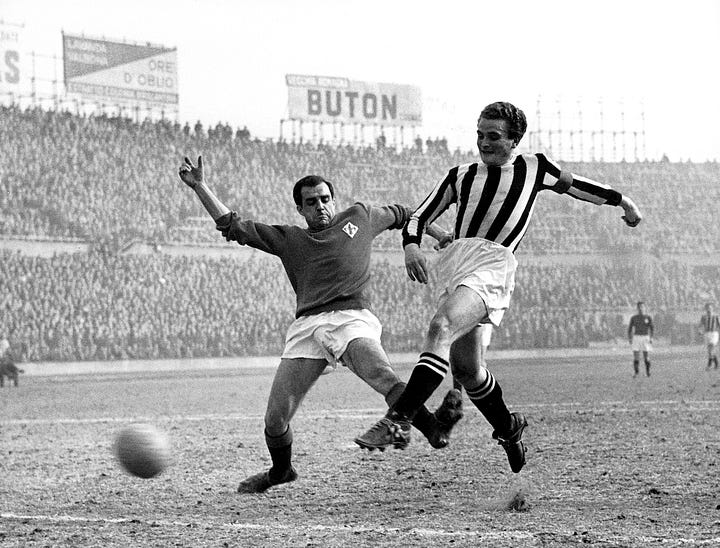
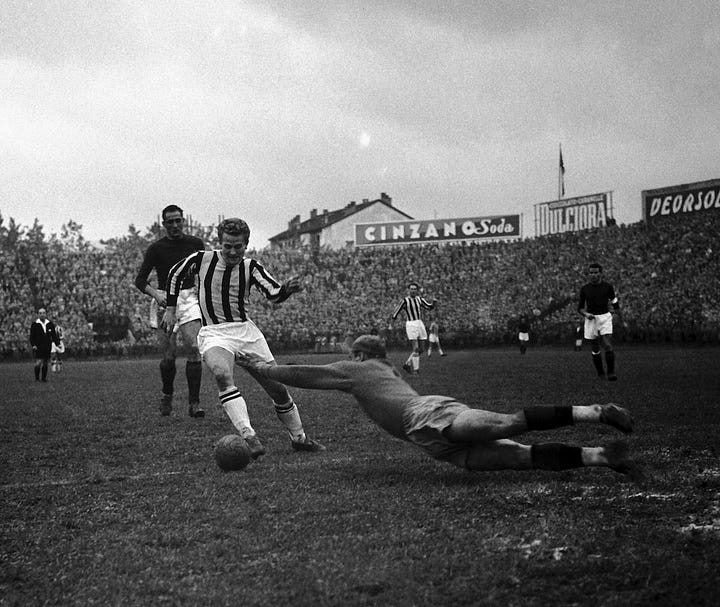
But statistics are only half the truth. Boniperti became captain and leader not because of his records, but because he embodied Juventus itself. He was the first truly modern bandiera of the club: the one-club man who turned down every outside possibility to remain faithful to Turin. He was not only part of great teams; he was the connective tissue that made them whole.
And among his many triumphs, one stands out in particular. Boniperti was captain when Juventus secured its 10th Scudetto in 1958, a victory that delivered the club’s very first Gold Star. That milestone is inseparable from the broader Juventus narrative: you cannot speak of the Third Gold Star without remembering the First. That is why Boniperti’s story is woven into Black and White Stripes: The Juventus Story’s central narrative.
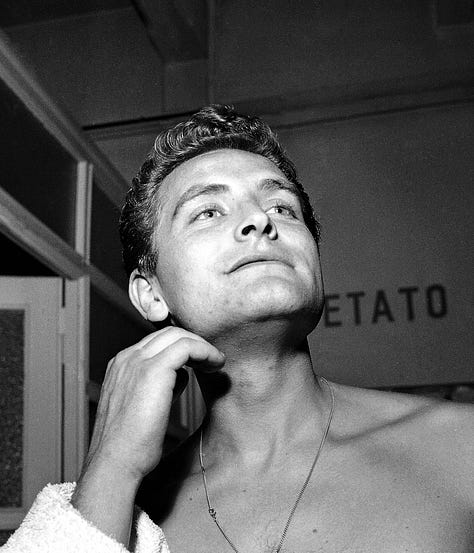
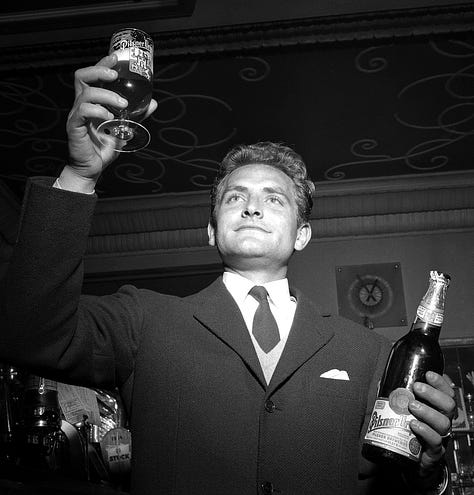
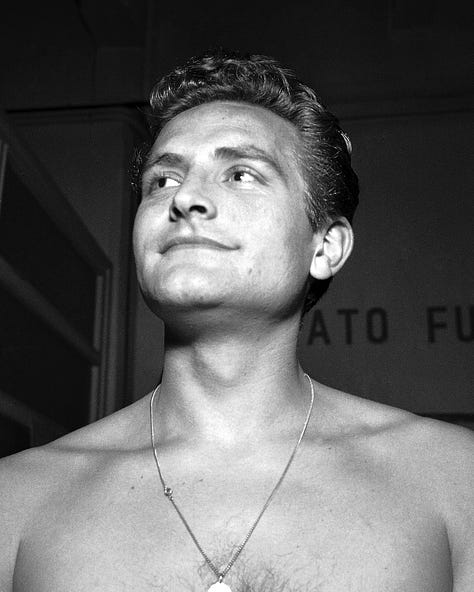
Conclusion
Giampiero Boniperti was not the loudest or the flashiest of footballers, but he was Juventus in its purest form. On the pitch, he played with economy, intelligence, and relentless purpose. Off it, he set the tone of loyalty and ambition. His records, his trophies, and his motto still reverberate, but above all it is the example of how he played the game — with clarity, discipline, and devotion — that made him immortal in black and white.


